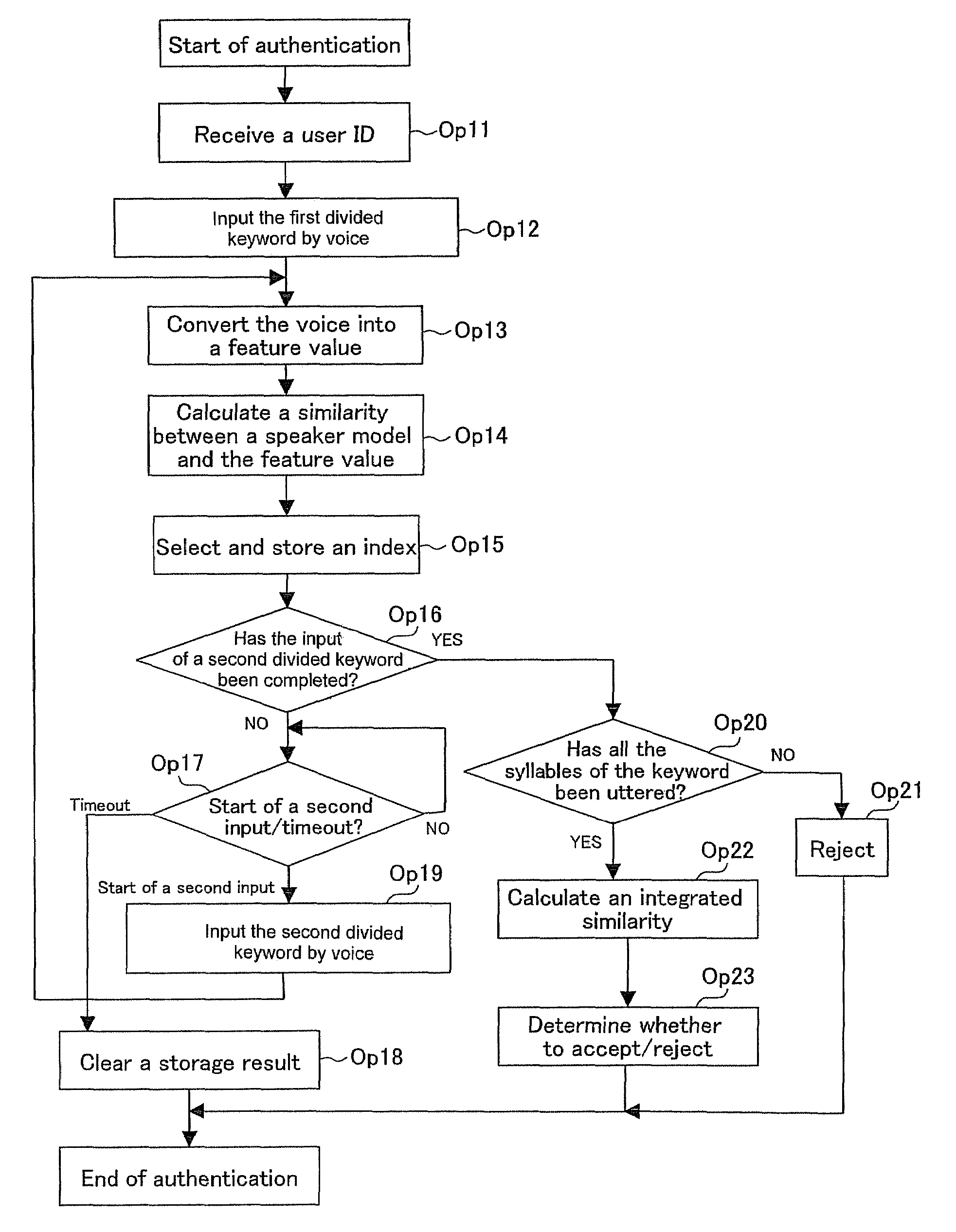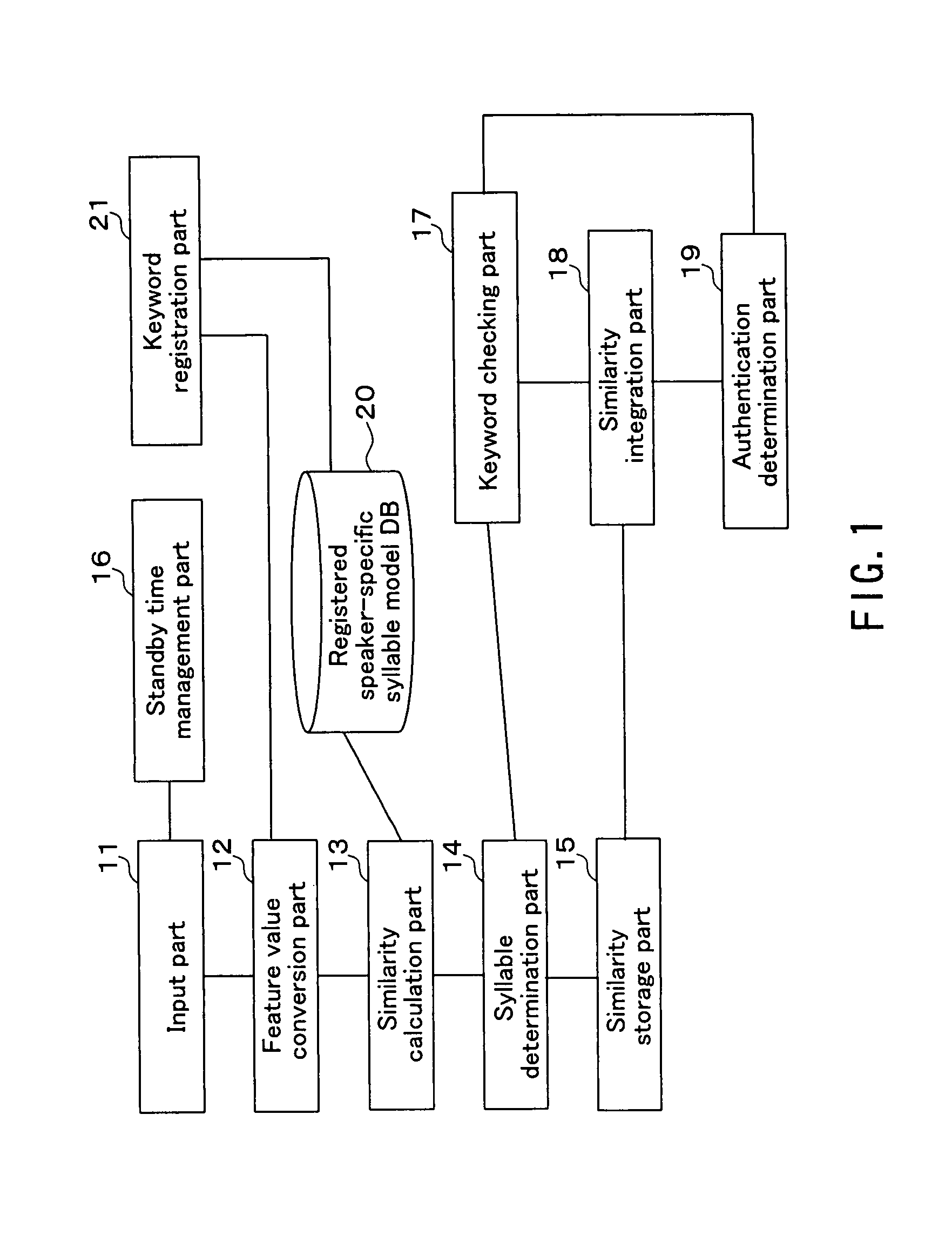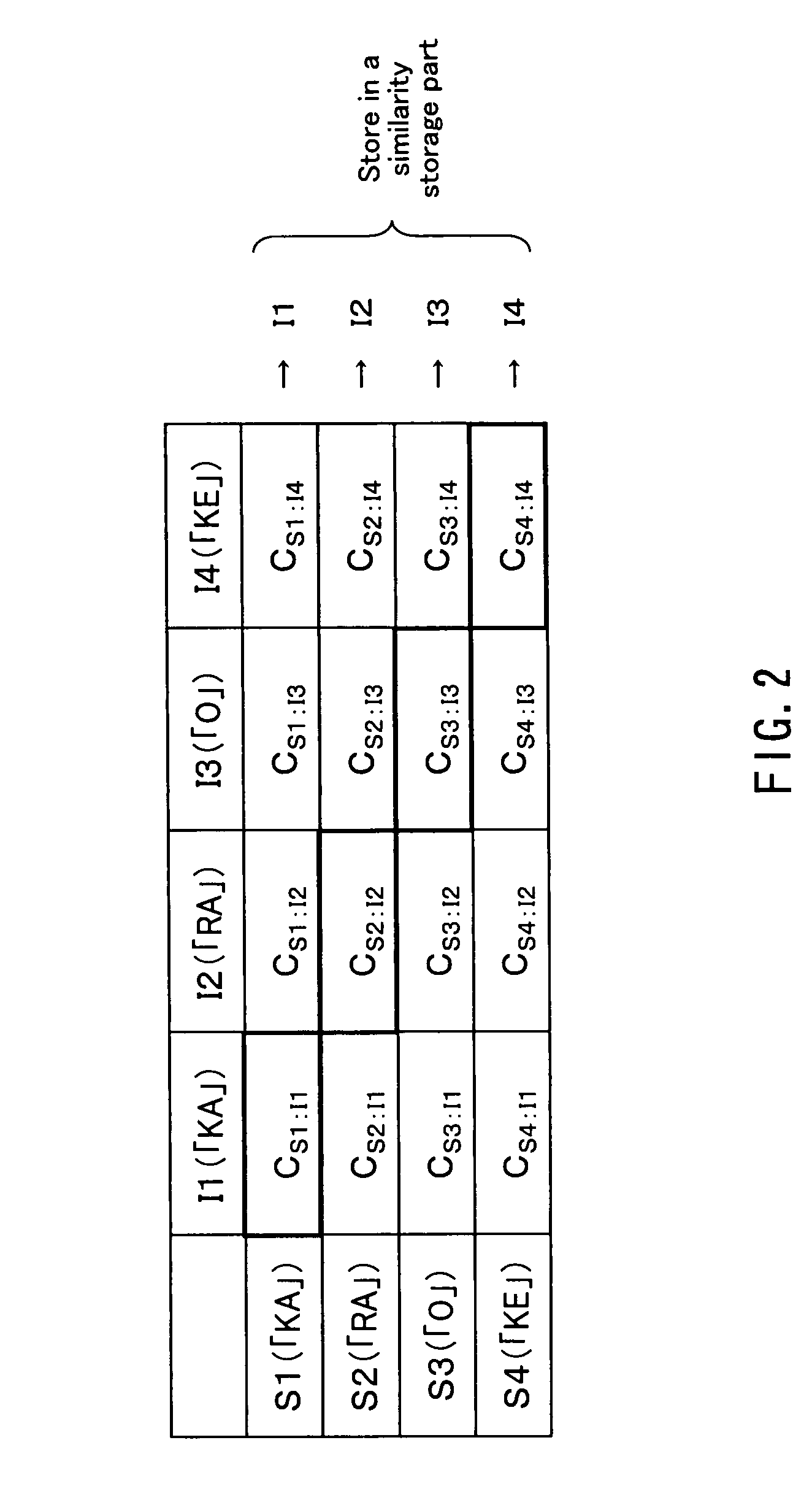Voice authentication system
a voice authentication and voice technology, applied in the field of voice authentication system, can solve the problems of reducing the accuracy of authentication, affecting the accuracy of voice authentication, and unable to adopt text-dependent voice authentication for the application, and achieve the effect of high authentication accuracy
- Summary
- Abstract
- Description
- Claims
- Application Information
AI Technical Summary
Benefits of technology
Problems solved by technology
Method used
Image
Examples
embodiment 1
[0040]One embodiment of the voice authentication system according to the present invention will be described below.
[0041]In the voice authentication system according to the present embodiment, a user to be authenticated inputs a previously registered secret keyword (password) by voice from a mobile telephone or a mobile terminal, thereby being authenticated. In the voice authentication system, at a time of authentication, the user divides all the syllables configuring an entire keyword into portions composed of one syllable or a plurality of syllables, and inputs the divided keywords by voice over a plurality of times at time intervals, more preferably, in different places. The input order of the divided keywords may be the order of the keyword or may be at random. At a time of authentication, it is necessary to utter all the syllables configuring the entire keyword by a plurality of voice inputs.
[0042]For example, in the case where a keyword is a “KARAOKE”, a user divides the keywo...
embodiment 2
[0097]Another embodiment of the voice authentication system according to the present invention will be described below. The configurations having the same functions as those of the configurations described in Embodiment 1 are denoted with the same reference numerals as those used therein, and the detailed description thereof will be omitted.
[0098]The voice authentication system according to the present embodiment is also suitable for voice authentication by a language in which a keyword is not always divided easily on a syllable basis like English, etc.
[0099]Therefore, as shown in FIG. 4, the voice authentication system according to the present embodiment includes an input part 11, a feature value conversion part 12, a similarity calculation part 13, a similarity storage part 15, a standby time management part 16, a keyword checking part 17, a similarity integration part 18, an authentication determination part 19, a speaker model database 22, a keyword registration part 21, a gramm...
embodiment 3
[0121]Still another embodiment of the voice authentication system according to the present invention will be described below. The configurations having the same functions as those of the configurations described in Embodiment 1 or 2 are denoted with the same reference numerals as those used in these embodiments, and the detailed description thereof will be omitted.
[0122]The voice authentication system according to the present embodiment checks whether or not a user has moved to another place after the voice input of a previous divided keyword every time the second and subsequent divided keywords are input by voice, and does not receive a voice input in the case where the user has not moved to another place.
[0123]Therefore, as shown in FIG. 6, the voice authentication system according to the present embodiment includes an input part 11, a feature value conversion part 12, a similarity calculation part 13, a syllable determination part 14, a similarity storage part 15, a standby time ...
PUM
 Login to View More
Login to View More Abstract
Description
Claims
Application Information
 Login to View More
Login to View More - R&D
- Intellectual Property
- Life Sciences
- Materials
- Tech Scout
- Unparalleled Data Quality
- Higher Quality Content
- 60% Fewer Hallucinations
Browse by: Latest US Patents, China's latest patents, Technical Efficacy Thesaurus, Application Domain, Technology Topic, Popular Technical Reports.
© 2025 PatSnap. All rights reserved.Legal|Privacy policy|Modern Slavery Act Transparency Statement|Sitemap|About US| Contact US: help@patsnap.com



